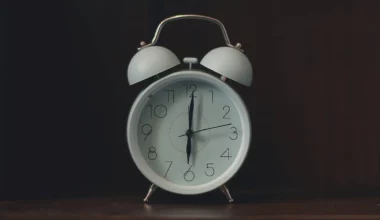What happens to your body when you don’t exercise enough? some people are born with a naturally lean physique and metabolism that allows them to eat whatever they want without gaining weight.
It’s tempting for these people to ditch exercise altogether and just hang out on the couch and watch TV with a friend. Exercise does more than help us burn calories to lose weight. In fact, too little exercise can have quite a big impact on what happens inside our bodies and our future health. What really happens if you don’t move enough?
You crave unhealthy food
Many people who exercise regularly also eat very healthily. While it may seem like this is always due to a conscious choice to be healthier, it turns out that the most active people actually crave healthy food. This is called the transference effect and refers to the effect where learning new skills and improving one area of your life automatically triggers the desire for improvement in another area. This is great if you’re looking to build more healthy habits, such as exercising and eating healthily.
The problem is that I have seen that it also works the other way around with some of my clients. When someone gets out of hand with their exercise routine, it doesn’t take long for their diet to follow suit. Your body stops craving highly nutritious foods because it no longer needs extra food. Instead, nutrient-poor but tasty foods like potato chips and chocolate cake become quite appealing.
Plus, it’s much easier to eat a bag of chips while you’re sitting in front of the TV watching an entire season of your favorite Netflix show than when you’re at the gym. Once you start eating junk food, you start craving more junk food. Wouldn’t it be easier to exercise regularly and let your body take care of the cravings on its own?

You don’t sleep well
You’ve been spinning nonstop all night, but you still feel like you have plenty of restless energy left. The Centers for Disease Control and Prevention (CDC) estimate that one in three persons in the United States does not get enough sleep. You may not be exercising frequently enough if you have difficulties falling asleep. It has been demonstrated that regular exercise lengthens sleep duration and improves daytime alertness and restfulness.
This has also been demonstrated in studies looking at body mass index (BMI), health, smoking, and depression. This demonstrates that the benefits of exercise on sleep go beyond the fact that those who exercise more frequently tend to have lower BMIs or are generally healthier. The benefits of regular exercise on sleep for everyone, including those who experience insomnia.
The health benefits of sleep won’t be as apparent if you don’t walk around enough. Only those who exercised consistently showed a significant difference in sleep quality, even though a single day of exercise only slightly improved sleep compared to those who did not exercise. Lacking sleep? Perhaps it’s time to start going to the gym regularly!

You get winded easily
If you don’t work out frequently, you might have trouble carrying a big bag of goods more than a few feet or running out of breath when ascending stairs. Regular exercise enhances both cardiovascular (heart and blood vessels) and pulmonary (lungs) health, which increases functional exercise capacity and lessens shortness of breath in both healthy individuals and those with chronic lung disease.
This implies that even when you are exhausted, your body can still better absorb oxygen. Your body cannot adequately absorb oxygen while stressed if you do not regularly exercise. You may feel as though you are not breathing enough air because it is difficult to use the oxygen that you breathe. This is the reason why returning to training after some downtime seems familiar.
you were when you first started, gasping for air. This is why, if you can’t breathe, you could feel lightheaded. We can all agree that it’s critical for the brain to receive enough oxygen.

You could get injured
The harder you push your body, the more it adapts to the movement and the more it can handle it before it gets tired. However, if you don’t train, your muscles will be deconditioned. This means that the result of sedentary work is a partial or complete reversal of previous gains in strength, cardiovascular fitness, flexibility, or mobility.
A consequence of this loss of condition can be injuries. Have you ever raced on the bus to stretch a muscle after weeks of inactivity? This is deconditioning at work. Or maybe you were trying to pick up something heavy (that you could easily lift before) and throw your back or twist your neck. You guessed it, deconditioning.
In order to move your body as it is designed and without injuring yourself, it is important to get enough exercise. Maybe you didn’t hurt yourself, but are you feeling more and more pain? Deconditioning has also been linked to chronic back pain. So if you notice a little more soreness and a little more stiffness in the morning, maybe it’s time to use it or ditch it.

You get grumpy and depressed
If you haven’t exercised enough and are feeling grumpy or sadder than usual, that’s not all in your head. When it comes to your mood, regular exercise can be an important factor. For those individuals with clinically diagnosed depression, exercise can lead to a reduction in symptoms. The benefits of exercise are not significantly different (better or worse) from those of cognitive therapy or antidepressants and have been suggested in addition to these types of treatments.
However, mental illness does not need to be diagnosed to reap the benefits of exercise on mood. Research has shown that people with non-clinical levels of depression and anxiety also benefit from regular exercise. Those who exercise regularly and then stop or significantly cut back also see a difference in mood.
Research has shown that improvements in mood and general well-being persist with regular exercise, whether the exercise was done at high or low intensity. This means you don’t have to start running marathons or join CrossFit to see an improvement in your mood, you just need to get moving.

You feel more stressed
In a study comparing inactive women, moderate athletes (two to six hours per week), and vigorous athletes (more than six hours per week), researchers found that women who exercised regularly had a lower stress response. The response to an external stressor produced by the studies was measured both physiologically (by heart rate and cortisol levels) and psychologically (measured by chronic stress and state anxiety levels). Before being exposed to the stressor, groups of women did not differ in terms of their level of stress.
After exposure to stress, non-athletes showed a greater stress response as measured by heart rate change and self-reported stress than the two exercise groups. Moderate and vigorous athletes responded less to stress, with vigorous athletes having a slight advantage over moderate athletes. So while your friend hitting the gym for two hours every day may be cool as a cucumber, even 30-45 minutes at the gym every day can help your body respond to stress.

You may die younger
You might not mind if your stress levels are high, your mood plummets, your pants are starting to get a little snug, and you can’t fall asleep at night. You don’t want to live long, do you? Numerous studies have shown that exercise not only reduces the risk of certain cancers and improves cardiovascular health, but also helps you live longer overall.
It turns out that regular exercise is associated with a 30% decrease in mortality from all causes, that is, all things that could potentially cause a person’s death. This means that people who exercise are less likely to die from disease and more likely to die from natural causes.
If you don’t train enough, you may be at greater risk for disease and a shorter lifespan. Leading a sedentary lifestyle has been linked to diabetes, cardiovascular disease, and all-cause mortality. It’s not just about weight and sleep, exercise can actually be a matter of life and death in the long run.

It doesn’t have to happen
Many unexpected things happen to your body if you don’t train enough, including changes in your physical and mental health. Many of these changes can be detrimental to your life in the long run, so it’s important to make sure you exercise regularly. If you have trouble incorporating exercises into your schedule.
Research has shown that recommending moderate exercise for at least 150 minutes per week can be divided into portions of as little as ten minutes and still be useful. You don’t have to go to the whole pig at once.
Start small and get comfortable so you can really make exercise a part of your long-term lifestyle. The last thing you want is to burn yourself. For your mind, body, and longevity, it’s time to get up and get moving.
If you desire to get any product that makes your life easier you can check this link:
“Once you are exercising regularly, the hardest thing is to stop it.”
– Erin Gray







